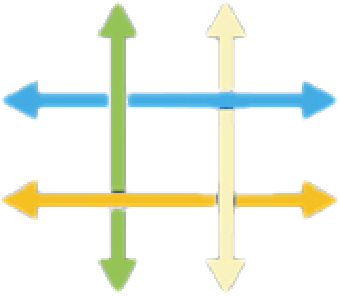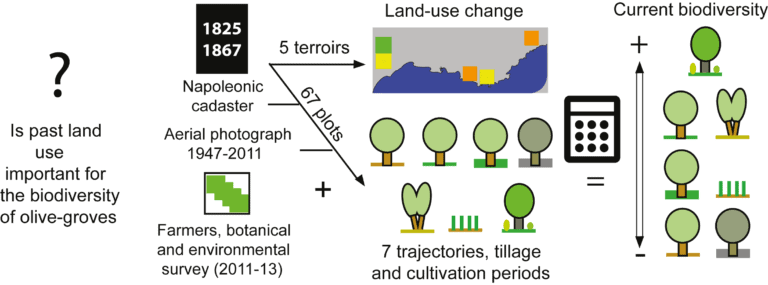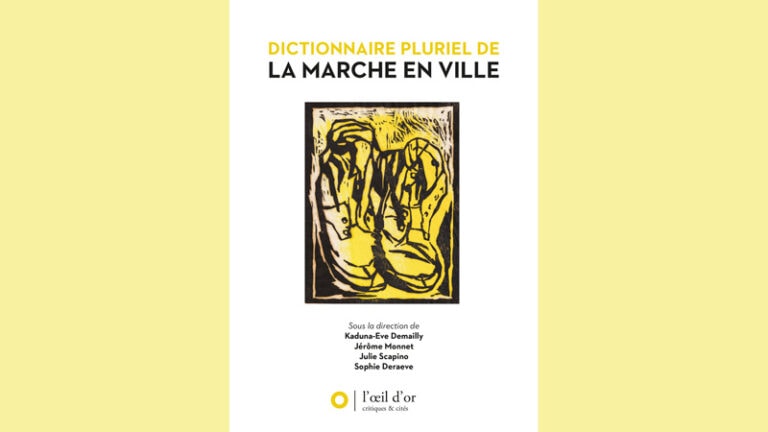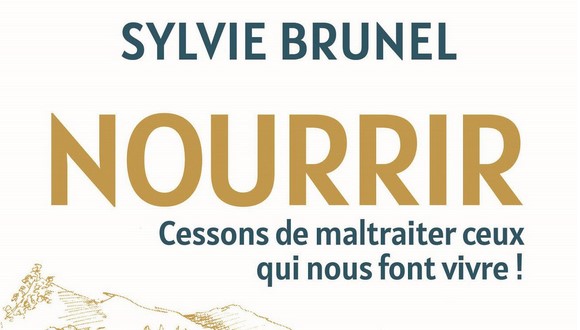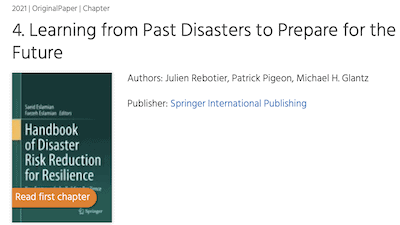
Patrick Pigeon co-auteur avec Julien Rebotier et Mickael H. Glantz d’un chapitre dans
« Handbook of Disaster Risk Reduction for Resilience – New Frameworks for Building Resilience to Disasters »
Learning from Past Disasters to Prepare for the Future
Authors: Julien Rebotier, Patrick Pigeon, Michael H. Glantz
Lien vers SpringerProfessionnal ici :
Abstract
This chapter revisits a well-known paradox in disaster studies: why does humankind suffer more losses while knowing more and in spite of innumerable existing disaster risk reduction policies? This paradox questions the ability of societies to learn from disasters, which is the issue that this chapter investigates. The first part presents the gap existing between a logical requirement to learn from the past while trying to mitigate if not prevent disasters. The gap – between possessing more knowledge in the face of mounting losses – still exists in spite of the capacities to reconsider DRR policies and to promote new tools helping decision-making processes, as with knowledge management systems (KMSs). Such shortcomings in addition to certain aspects of human nature, such as a government’s very short interest and attention span in any given crisis, seek to identify factors explaining why capacity to learn is limited today. The second part of this chapter draws attention to why, as well as how, to take into account local settings and local knowledge when framing risk-reducing policies. The latter are still highly compartmentalized for a variety of challenging reasons. However, opportunities and challenges demand immediate consideration. Societies must bridge, blend or mainstream their policy concerns about planning for future climate change adaptation (CCA) with attempts at policy development for disaster risk reduction (DRR) today, especially because hydrological and meteorological extremes that were expected by 2050 are beginning to confront societies now.
